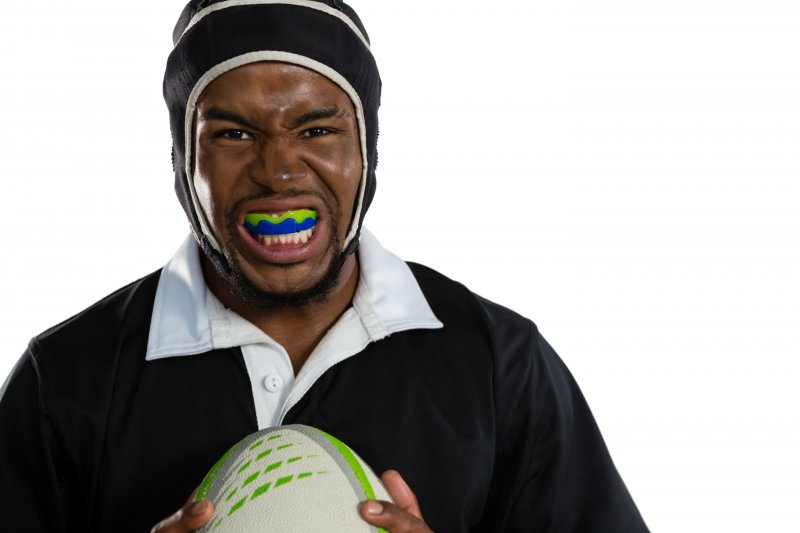
Staying active is great for both your physical and mental health. However, when you’re participating in sports, especially contact sports, you are much more likely to experience a dental emergency than those who do not. Fortunately, by wearing a mouthguard, many dental injuries can be avoided. Read on to learn more from an emergency dentist about the most common dental injuries that take place during sports.
Fractured Teeth
This happens most often when an athlete gets hit in the face abruptly. A fractured tooth involves a crack or split that begins at the crown and extends downward. Cracked teeth can vary significantly in severity and require dental treatment to prevent long-term issues, like infections of the teeth. Here are the most common symptoms of a fractured tooth:
- Sharp pain when biting down
- Pain that comes and goes
- Increased sensitivity when consuming hot and cold foods and beverages
- Loss of section of tooth’s protective enamel
This type of injury isn’t always obvious. In some cases, your dentist may perform a root canal or extraction to prevent a bacterial infection from occurring later on.
Root Fractures
It is also possible to break the root of your tooth. If you receive a blow to the face at a certain angle, the root may fracture. This happens when the crack of the root travels in the direction of the chewing surface of the tooth. Because this type of injury is so difficult to see with the naked eye, you may not even notice it has happened until you develop an infection and feel pain. When this issue is addressed early enough, it is often possible to save the tooth with root canal therapy.
Tooth Intrusion
In this situation, a tooth is driven back into the jawbone. This is more common for kids who still have their primary teeth because a child’s alveolar bones (which hold the teeth into place) are not as strong, but it can happen in adult teeth as well. This injury can cause a variety of different issues, like the destruction of the tooth pulp, root resorption, and ankylosis. This is when the root of the tooth fuses to the alveolar bone.
Any of these issues can cause long-term oral health issues if they aren’t addressed right away, so you should see your dentist if you suspect that you may have a dental injury. Wearing a custom-made mouthguard from your dentist is a great way to prevent injuries before they occur so you can keep your head in the game without having to worry about harming your smile!
About the Author
Dr. George A. Hoop earned his Doctor of Dental Surgery degree from the Emory University School of Dentistry and has pursued additional training through several of the world’s leading institutions, including the Pikos Institute, the Misch International Implant Institute, the Dawson Academy, and the Pankey Institute. For more information or to schedule an appointment at his office in Fort Myers, visit his website or call (239) 594-8817.

